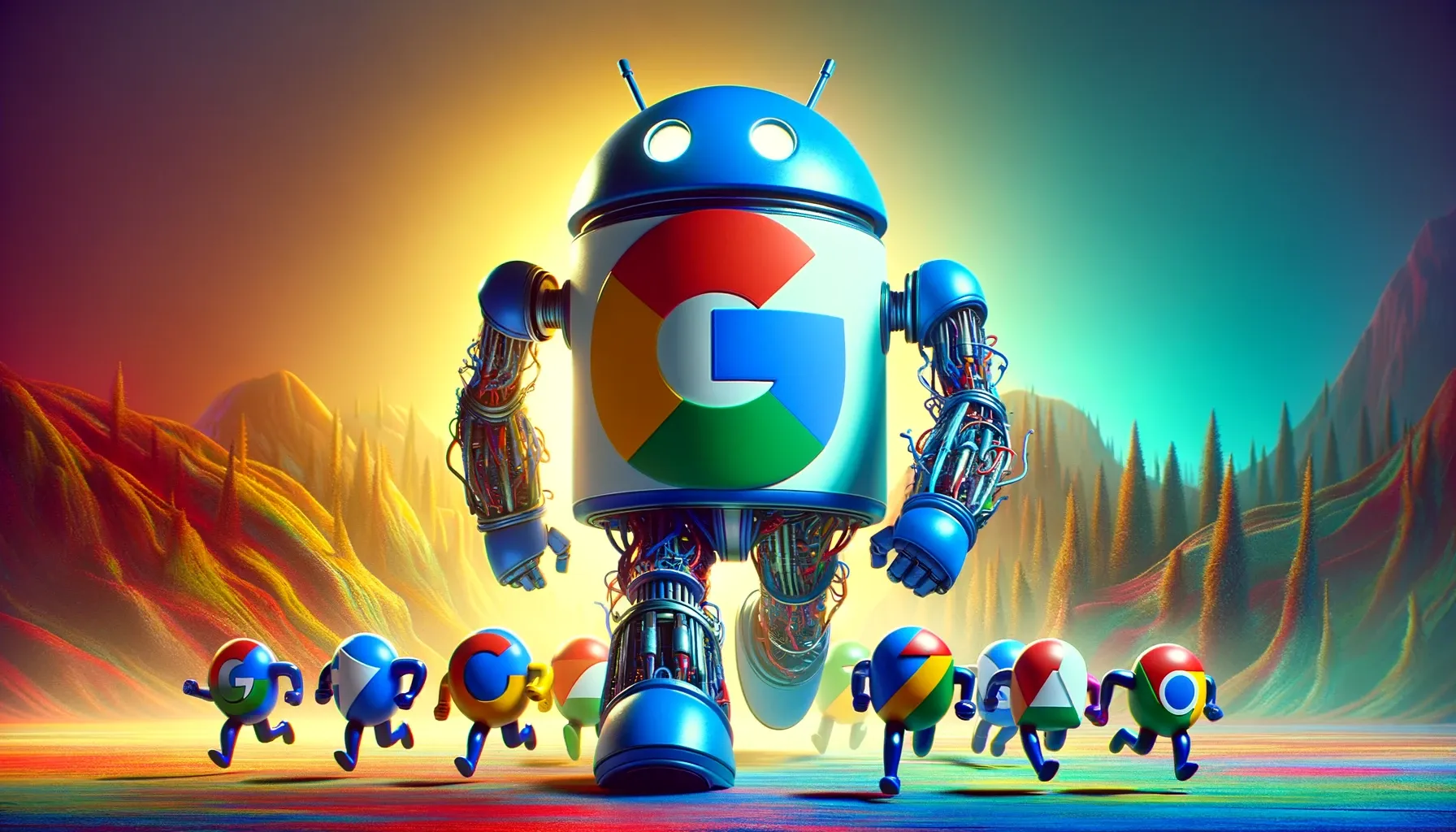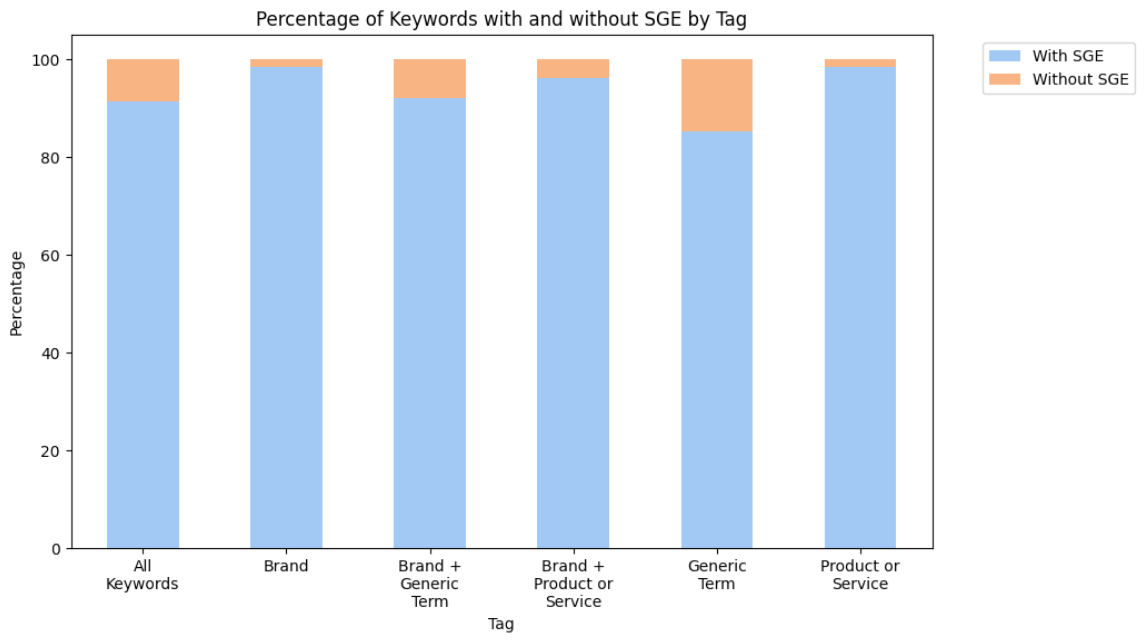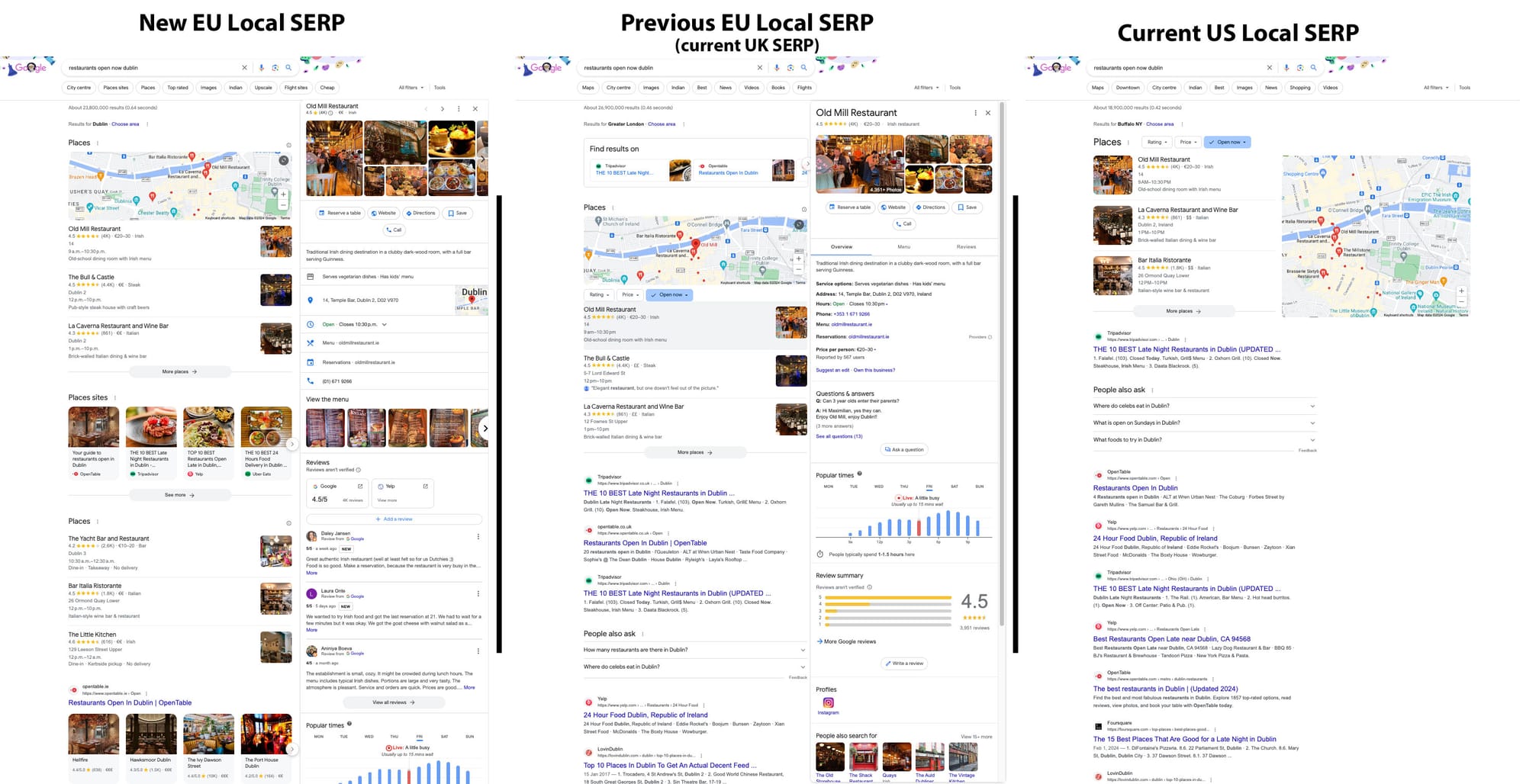SGE Hits Brands, DMA Hot Seat, Altman Reimagines Search

SGE Is Coming for Brands
Google has started to expose SGE results to users outside of Google Labs. There's been much hand-wringing in the SEO community over anticipated organic traffic losses if/when SGE rolls out. Aleyda Solis offers a risk assessment guide for three SGE scenarios: duplicative SGE, summarizing/complementary SGE and accelerator SGE – low, medium and high, accordingly. Surprisingly, brand queries are in the high-risk category, a finding echoed in a new study from Authoritas. The new SGE study is a follow-up to one conducted earlier this year. Brand queries saw a higher percentage of SGE results than other categories. "These new types of generative results introduce more opportunities for third-party sites and even competitors to rank for your brand terms and related brand and product terms that you care about," observes Authoritas' Laurence O'Toole. Beyond this, 91% of all keywords across 15 verticals triggered an SGE result. And when a user expands an AI snapshot/SGE result, the top organic link drops way down the page: "an average 1,255 pixels." There are ~11 links from ~4 domains on average in SGE. And 62% of SGE links are from outside the top 10 domains. A slide deck containing the study findings is available here.

Our take:
- The fact that non-top 10 domains can rank in SGE is potentially positive; Google is trying to use SGE to diversify top results. However, the idea that branded keywords could be "hijacked" is worrying.
- Building a brand has been an important and powerful hedge against the vagaries of Google's algorithm. Perhaps not as much going forward.
- We still don't have much data on how consumers interact with SGE. That is the "x variable" in this debate. Google has tons of user data but hasn't released any.
In the DMA Hot Seat
Last week, in a Brussels DMA workshop with regulators, Google argued that it was in compliance with the Digital Markets Act (DMA). However, on Monday, regulators opened non-compliance investigations into Meta, Apple and Google. That apparently means Google failed to sway them with its compliance demonstrations. Each company faces different "charges." Meta is being investigated over its "pay or consent" model. Apple confronts issues surrounding user choice and iOS. And Google is being investigated for "steering in Google Play and self-preferencing on Google Search." David and Mike offer an in-depth look at Google's arguments and positions presented in Brussels. Near Media user testing previously found that Google's DMA SERP changes did not capture significant engagement. The DMA is intended to promote consumer choice and make the internet more competitive in Europe. Penalties for non-compliance can be a meaningful percentage of global revenue. Google has said it will "defend" the changes implemented in search results. The company argues that it's currently in compliance, although there's ambiguity and disagreement over how compliance should be measured. Google has taken the position that significant UI/SERP changes would "degrade Google search," which it claims is not required by the DMA.

Our take:
- In some DMA categories compliance is much easier to imagine (e.g., browser or search choice). In others, such as local, it gets very tricky to determine.
- Does compliance mean that "aggregators" (e.g., Tripadvisor) see more traffic from Google? Process vs. outcomes: should the DMA guarantee outcomes – and for whom?
- And what if people continue to choose Google and its various properties (e.g., Maps) instead of third parties' sites/tools?
OpenAI Wants to Reinvent Search
OpenAI CEO Sam Altman, in a widely covered interview, talks about how AI might reinvent the search experience. Asked about whether OpenAI can improve upon Google, Altman responds, "I find that boring." While he expresses confidence that a better search engine could be built, he says, "The thing that’s exciting to me is not that we can go build a better copy of Google search, but that maybe there’s just some much better way to help people find and act on and synthesize information ... I don’t think the world needs another copy of Google." He says he wants to combine LLMs plus search: "I would love to go do that. I think that would be cool." Presumably Bing tried to do a version of that with limited impact (not discussed). And ChatGPT can search the internet using Bing, though the experience is suboptimal. Asked about business models, Altman says he hates ads, although he admits they were necessary for the early internet. He prefers that people pay to access services because that avoids conflicts of interest or editorial bias. He allows, however, that it might be possible to do a better version of ads for LLMs.
Our take:
- The existence of BingGPT and the integration of search into OpenAI shows that no current combination of LLMs + search is a Google killer.
- Altman's intuition that a next-gen, AI-powered search experience needs to be very different from Google is right.
- It's technically feasible to build a better search engine with AI. But Google's entrenched advantages make competing very challenging.
Recent Analysis
- Google Attempts to Redefine Its Local Services to Avoid DMA Compliance Consequences, by David Mihm & Mike Blumenthal.
- ICYMI: Why Local Searchers Look to the Local Finder, by Mike Blumenthal.
Short Takes
- An informal Reddit roundup of SGE studies to date.
- GBP appeal process bringing more transparency.
- An inventory of all the AI SEO tools mentioned at Pubcon.
- E-E-A-T contains "hidden" elements: notability, transparency.
- Google continues with testing Places/Place Sites filters in EU.
- Taking a page from Ask, Bing buying Google Ads to drive traffic.
- Content model alternatives to the traditional marketing funnel.
- Continuing decline: Twitter/X users down 18% year over year.
- AI Pin = search + ChatGPT, but will people buy it?
- GenZ has broken the marketing funnel.
- Antitrust case against Apple may be weaker than it seems.
Listen to our latest podcast.

How can we make this better? Email us with suggestions and recommendations.

